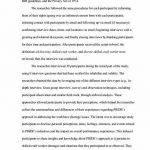Overview
This course is designed for all those who want to acquire a thorough understanding of the more recent and often complex trends and developments in crime, criminal justice, and governance more broadly. Combining theoretical reflection and practical application, the course aims to provide you with an opportunity to specialise in the latest developments in criminology, criminal justice and governance studies. The programme welcomes recent graduates (whether UK based or international students), mature students, and professionals in one of the relevant fields (e.g. police officers, prison officers, probation officers, social workers, lawyers, magistrates).
The MA programme is block taught. You will be required to attend four 3-day blocks of intensive teaching and discussion that normally run between September and May. This format allows students to combine their studies with either part-time or full-time professional activities should they wish to do so.
A significant effort will be made in the programme to tailor teaching contents both to your individual educational and professional background and to your intellectual or professional interests. The programme has a teaching format which will provide you with many opportunities to discuss your own intellectual interests or professional experience. You will also be offered an opportunity to take an elective. The programme includes an additional half day dissertation workshop where you will be able to prepare for your dissertation research.
The distinctiveness of the programme resides in its multidisciplinary curriculum which is simultaneously rooted in the University’s dual honours approach to undergraduate teaching and interdisciplinary approach to research.
The programme is taught by staff from the school of sociology and criminology who all have considerable expertise (both research and teaching) in the fields of criminology, criminal justice, and governance studies.
Students will be assigned a personal supervisor from the teaching team. They will be available for help or advice at any time during the course.
Aims of the Course
- To introduce students to recent and contemporary theorising in criminology and governance studies
- To show students how recent and contemporary theorising in criminology and governance studies has attempted to describe, analyse and interpret contemporary developments in criminal justice, transnational justice, international justice, and governance more broadly
- To enable students to think through methodological problems and choose appropriate methods for the study of crime, criminal justice, and governance
- To enable students to critically assess research in a number of fields within criminology, criminal justice, and governance studies more broadly
- To enable students to design and complete a research project and understand the importance of the research process in the social sciences
Entry Requirements
Applicants should have an honours degree at 2:2 class or higher (or international equivalent) in one of the humanities or social sciences subjects (e.g. law, criminal justice, criminology, sociology, history, political science). However, applicants with other qualifications and appropriate experience will be considered on a case-by-case basis.

Students for whom English is a second language will need English language proficiency of at least 6.5 in IELTS test scores (or equivalent).
Tuition Breaks, Grants and Bursaries
All American and Canadian students will be eligible for a 10% bursary towards the overseas rate of tuition for the course. In addition, all students graduating from one of our 30 North American partners will be eligible for a further 15% bursary. Finally, if a previous exchange student from one of the partner universities decides to come back to Keele for graduate study, they will be eligible for a 50% bursary. Further information can be found here .
All students are eligible for an ERASMUS grant for the period spent at an EU partner institution.
Course Content
The taught Masters programme requires satisfactory completion of at least 180 credits. The MA programme in Criminology and Criminal Justice includes four 30-credit module blocks and one 60-credit dissertation of 15-20,000 words. All module blocks include at least 12 teaching sessions. The programme includes, in chronological order:
- Contemporary Criminology: Theory and Practice
- Researching Crime and Criminal Justice
- Contemporary Challenges in Criminal Justice
- Advanced Topics in Criminology and Criminal Justice. Alternatively, Ethical Issues in Criminal Justice (dependent upon student numbers and resources permitting)
Each module block comprises the following:
- Three days of intensive face-to-face contact between staff and students. Each day is sub-divided into four thematically linked sessions and several members of staff contribute to each day.
Course Modules
Contemporary Criminology: Theory and Practice
This module block will introduce you to criminological theories and perspectives. However, in contrast to many if not most theoretical modules in criminology, this module block explicates theories or perspectives in criminology by applying them to particular issues and problems. This module block will thus include sessions on topics such as (e.g.):
the political economy of crime and crime control in the 21 st century; biopolitics of security; crime, crime control and the modern imagination; crime, disorder and the governance of space; crime, historical and global contexts; consumerism, popular culture, and crime; the phenomenology of ‘edgework’; terrorism, organized crime, and complexity; cultural and critical criminology; post-structuralism and criminology.
The list of subjects may vary from year to year depending on e.g. staff availability. It is however anticipated that the majority of sessions and/or topics will recur year after year.
Researching Crime and Criminal Justice
This module block includes sessions on topics such as (e.g.):
interpreting quantitative research data; researching fear of crime; interpreting qualitative research data; ethnographic research; research on urban dynamics and migration; uses and misuses of statistics; databases and datasets in criminology and criminal justice; oral history and documentary analysis in criminal justice studies; researching courts and prisons; research in cultural and critical criminology; feminist research in criminology and criminal justice.
Contemporary Challenges in Criminal Justice
This module block will introduce you to a number of contemporary issues and developments in criminal justice and governance studies. The module includes sessions on issues such as (e.g.):
risk society, surveillance, and actuarial justice; plural policing and nodal governance; late modern precautionary culture; technology and criminal justice; fines and fixed penalties; criminal injustice and miscarriages of justice; the expanding prisoner complex; prison life and prison work; community, crime and criminal justice; policing the state of exception; transitional justice and reconciliation.
Advanced Topics in Criminology and Criminal Justice (or, alternatively, Ethical Issues in Criminal Justice)
This module block consists of sessions on topics proposed by students themselves, as well as sessions based on individual staff members’ and dissertation supervisors’ expertise.
Teaching and Assessment
Each of the taught modules is assessed by written, summative coursework assignments of up to 5,000 words (essay, case-study, research proposal, and empirical research report). The pass mark is 50% and students must pass each of the modules in order to progress to the dissertation, which involves researching and writing a dissertation of 15,000-20,000 words. There are no exams.
Additional Costs
Apart from additional costs for text books, inter-Library loans and potential overdue library fines we do not anticipate any additional costs for this post-graduate programme.
Jodie Hart MA Criminology and Criminal Justice student (2010/11)
I have thoroughly enjoyed every aspect of the MA in Criminology and Criminal Justice; my favourite aspects however have been the small teaching groups, the diversity of students and their interests, the knowledgeable and supportive teaching staff, and the teaching content which has been challenging and thought provoking. In the last year I feel my Criminological knowledge has considerably improved, especially in areas that I didn’t even know I was interested in! The nature of the enthusiastic teaching has made it all so accessible and given the opportunity I would stay on and do the course all over again!
Kevin Hoffin MA Criminology and Criminal Justice student (2010/11)
The MA Criminology and Criminal Justice course has been as eye-opening as it has been relevant. The tutors have clearly worked tirelessly to ensure that the source material is current and therefore as interesting as possible. Concepts that have been introduced throughout the course have been explained perfectly, and I have no qualms about recommending this course to others. The structure of the course is perfect for those who juggle it alongside a job or family, and for those like me who travel a considerable distance to get to Keele, it is surprisingly affordable.
Graduates from our course have found employment in a variety of occupations including: the accelerated police and prison graduate training programmes; the probation service; in other criminal justice agencies; in the voluntary sector with organisations such as Victim Support and NACRO; and in a variety of other graduate level jobs. In addition, a number of graduates have gone on to take postgraduate courses at Keele and elsewhere.
As part of your Criminology degree you will have gained a set of Distinctive Graduate Attributes that put you in a unique position in an uncertain labour market that demands graduate employees to be skilled, yet flexible, workers.
For further help and advice about how to put yourself in the best position upon graduation explore the Careers and Employability web pages or drop in to see them. They can help with all aspects of the transition into employment, from drawing up a CV to preparing for job interviews.
Further sources for advice about what to do with a degree in Criminology:






 Connaissance de soi philosophie dissertation writing
Connaissance de soi philosophie dissertation writing Les cours constitutionnelles dissertation writing
Les cours constitutionnelles dissertation writing Dissertation fu berlin online shopping
Dissertation fu berlin online shopping Laction en justice des associations dissertation writing
Laction en justice des associations dissertation writing Lancaster university history dissertation awards
Lancaster university history dissertation awards






